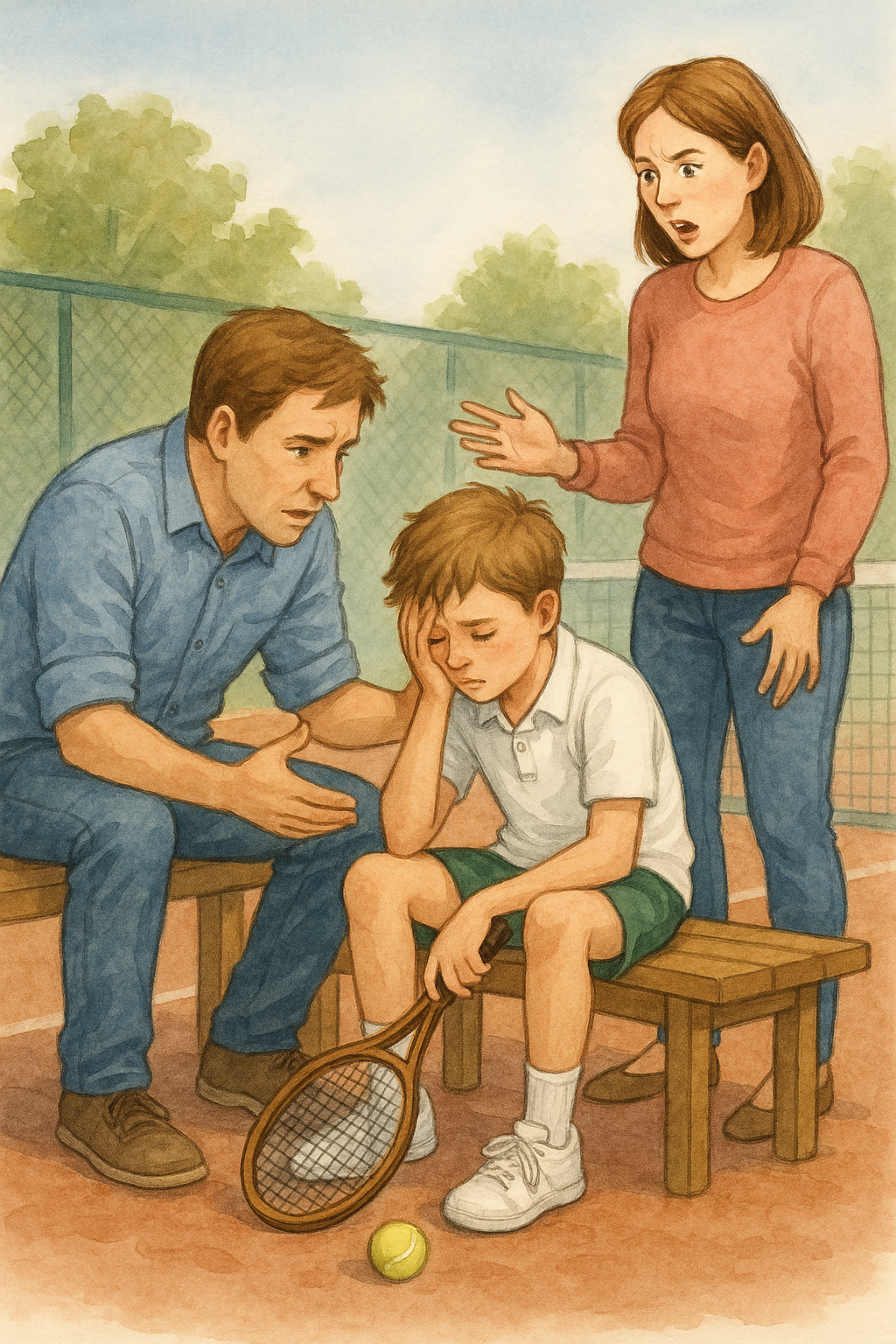What Should Parents Do When Their Child Tanks a Tennis Match?
As parents, watching your child give up in a tennis match—whether by throwing their racquet, mentally checking out, or simply not trying—can be one of the most frustrating and confusing experiences. You want to help, but you’re unsure whether to discipline, encourage, or just stay quiet.
So, what should you do when your child tanks?
1. Pause Before Reacting
Your first instinct might be to talk about the match right away—but emotions (yours and theirs) are likely high. Give your child space. Let them cool down before starting any conversation. Sometimes, the best response immediately after a tough loss is simply: “I love watching you play.”
2. Understand the ‘Why’ Behind the Tanking
Tanking is rarely about laziness. Kids might tank because:
• They feel overwhelmed or frustrated.
• They’re afraid of losing after trying hard.
• They want to avoid embarrassment.
• They’ve set unrealistic expectations.
Dig deeper in a calm moment: “I noticed you looked frustrated out there. What was going on in your mind?” The goal is to create a safe space for honesty—not to interrogate.
3. Avoid Shame-Based Responses
Saying things like “You embarrassed yourself,” or “You didn’t even try,” can do lasting harm. Instead, focus on values: effort, resilience, and sportsmanship. Tanking should be addressed, but through teaching—not punishment.
4. Reframe Failure and Effort
Help your child understand that struggling is part of growth. Praise the process, not just the outcome. Share stories of athletes who fought through tough moments, or even your own challenges with quitting and bouncing back.
Try saying:
“It’s okay to have bad days, but giving your best even when things are hard—that’s what helps you grow.”
5. Talk About Mindset and Emotional Skills
Tennis is emotional. Teach your child how to manage frustration, pressure, and perfectionism. You can role-play responses to tough situations or work with their coach on emotional tools like breathing techniques and positive self-talk.
6. Make a Plan (Together)
Once the emotions have settled, work with your child on a plan. Ask:
• What could you try next time when you feel like giving up?
• How do you want to handle those tough moments differently?
This makes them part of the solution—and helps them grow in ownership and maturity.
⸻
Final Thoughts:
Tanking isn’t a sign your child doesn’t care—it’s often a signal they care too much and don’t yet know how to manage the emotions that come with competition.
As a parent, your calm, supportive guidance can make all the difference. Be a steady voice reminding them that effort matters, failure is okay, and they’re more than just the result of a match.
And remember: your reaction shapes their relationship with the game far more than a win or loss ever will.

